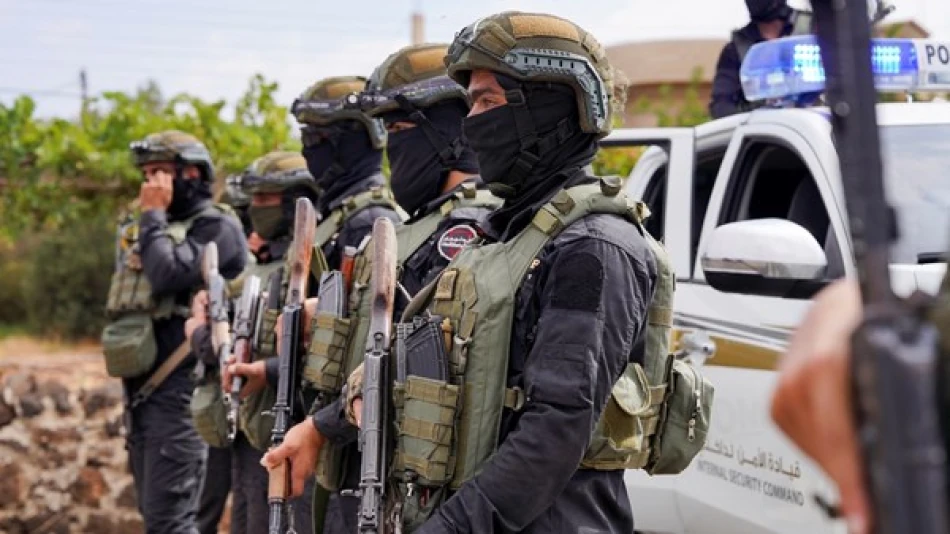
Calm Restored in Sweida After Tribal Fighters Withdraw
Syria's New Government Faces First Security Test as Tensions Ease in Suweida
The southern Syrian city of Suweida returned to an uneasy calm on Sunday after government forces successfully negotiated the withdrawal of armed tribal groups following a week of violent clashes. The incident marks the first major security challenge for Syria's new administration under President Ahmed al-Sharaa, testing the government's ability to maintain order while addressing deep-seated sectarian and tribal tensions that have simmered throughout the country's prolonged conflict.
Fragile Peace Returns to Strategic Southern City
Residents of Suweida reported that gunfire, which had echoed through the city for days, fell silent on Sunday morning. Interior Ministry security forces established checkpoints around the city and blocked roads leading to areas where tribal groups had gathered, according to local witnesses and photographs from the scene.
Dr. Kinan Azzam, a local dentist, described the atmosphere as "calm tinged with tension," reflecting the precarious nature of the ceasefire. The phrase captures the reality facing many Syrian communities as they navigate the transition from conflict to an uncertain peace.
Humanitarian Crisis Deepens Amid Security Concerns
Beyond the immediate security implications, the Suweida incident has highlighted the severe humanitarian conditions plaguing Syria's southern regions. Raed Khazaal, a local resident, reported that "life has completely stopped" in the city, emphasizing the urgent need for humanitarian assistance.
The paralysis of daily life during the week-long crisis underscores how quickly localized conflicts can devastate already vulnerable communities. This pattern has repeated across Syria, where economic collapse and infrastructure destruction have left millions dependent on international aid.
Testing Ground for Syria's New Leadership
The Suweida crisis represents a critical early test for President al-Sharaa's government, which has promised to protect all Syrians regardless of sect or ethnicity. In a Thursday address, al-Sharaa pledged accountability for those who commit violations against citizens and held what he termed "outlaw groups" responsible for the violence.
This approach signals a departure from previous government tactics, emphasizing negotiation and legal accountability over purely military solutions. However, the effectiveness of this strategy will depend on the government's ability to address underlying grievances while maintaining security.
Tribal Dynamics and Regional Stability
The clashes between Bedouin tribes and local armed groups reflect deeper issues that extend beyond Suweida. Syria's tribal regions, particularly in the south and east, have experienced increased autonomy during the conflict years, with various groups filling security vacuums left by retreating state forces.
Similar tribal tensions have emerged across the Middle East, from Iraq's Anbar province to Libya's southern regions, where central governments struggle to reassert control over areas dominated by local power structures. Syria's challenge lies in integrating these groups into a unified national framework without triggering renewed conflict.
Economic Implications and Recovery Prospects
The swift resolution of the Suweida crisis may provide some reassurance to international observers monitoring Syria's stability. However, the underlying economic conditions that fuel such conflicts remain largely unaddressed.
Syria's economy has contracted by an estimated 60% since 2011, with sanctions, currency collapse, and infrastructure destruction creating conditions ripe for local conflicts over resources and territory. The government's ability to provide basic services and economic opportunities will likely determine whether incidents like Suweida remain isolated or spread to other regions.
For international stakeholders considering engagement with Syria, the handling of such crises will serve as important indicators of the government's capacity for effective governance and conflict prevention in a post-war transition period.
Most Viewed News

 Layla Al Mansoori
Layla Al Mansoori






